6. The Science of Sleep (Michel Gondry, 2006)
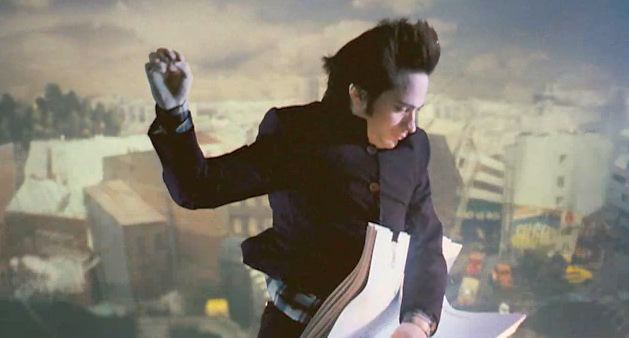
After his father’s death in Mexico, Stéphane (Gael Garcia Bernal) decides to go to live in Paris with his mother, who found a job for him in a print shop that designs calendars. Stéphane is an ambitious dreamer and he wants to become an inventor. The job is not what he expected and he quickly loses interest in it.
However, another thing keeps him excited: the neighbor’s daughter, Stéphanie (Charlotte Gainsbourg) who Stéphane almost instantly falls in love with. He finds it very difficult to face reality and he often dreams of the things he wants from his life. The limits between reality and fantasy become blurry and he feels at loss with Stéphanie. The only place he finds the courage to express his feelings for her is in his dreams and he tries desperately to achieve it.
Two years after the “Eternal Sunshine of the Spotless Mind”, director Michel Gondry dealt with another topic that involves the human mind. First it was the memory and now the dreams. The movie is easily recognizable as Gondry’s work, as it has many of the elements that he’s used in his previous filmography.
Bernal proves that he is one of the more versatile actors of his generation as he can play a variety of difficult roles with the same convenience. He delivers a top notch performance by playing a childish young man who is afraid of growing up, and prefers to live in his dreams instead of in real life. The same also goes for Charlotte Gainsbourg, who gives a rather natural and down to earth performance as Stéphane’s object of desire.
7. Babel (Alejandro González Iñárritu, 2006)
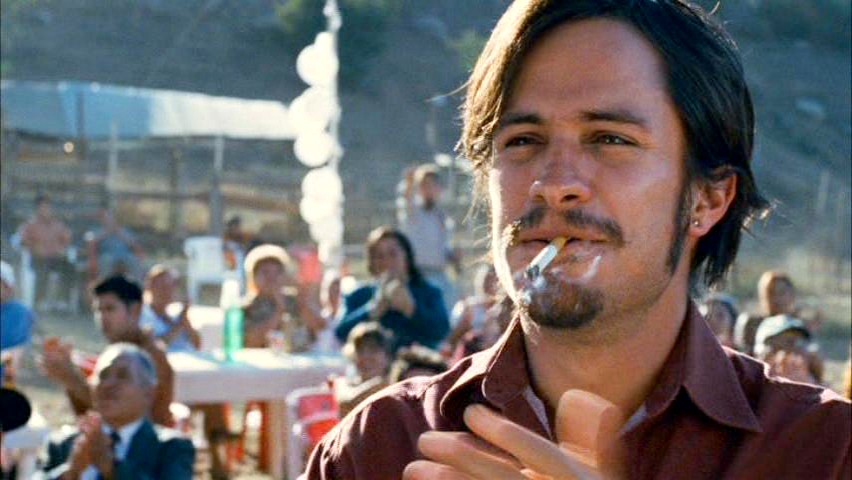
The plot begins with a young farm boy, who is playing with a rifle in the Moroccan dessert with his brother. He accidentally shoots an American tourist on a bus, Susan (Cate Blanchett), who is traveling with her husband, Richard (Brad Pitt). In the middle of nowhere, Richard is trying to do everything he can in order to save his wife’s life.
At the same time, their children’s babysitter, Amelia (Adriana Barazza), has no other choice but to travel to Mexico with the little boy and girl in order to attend to her son’s wedding. Her nephew (Gael Garcia Bernal) helps them with the transportation, but on the way home a series of unexpected events occur.
The boy’s father bought the rifle that was used against the bus, and it belonged to a man who lives in Tokyo with his deaf-mute daughter. We see scenes from her life, how alone and isolated she feels, how different and weird she seems from other “normal” people.
This is the third collaboration between director Alejandro González Iñárritu and screenwriter Guillermo Arriaga after “Amores Perros” and “21 Grams”. They use the same pattern as with the previous movies and essentially, a rifle connects the stories. The movie shows the contemporary isolation that the people experience in different parts of the world.
It doesn’t matter where you live, whether it is crowded (Tokyo) or narrowly populated (the Moroccan desert); you could feel the same loneliness and lack of communication with the people living next to you. The performances from all the actors and actresses are superb, and Bernal adds another concise role to his already successful career.
8. Even the Rain (Iciar Bollain, 2010)
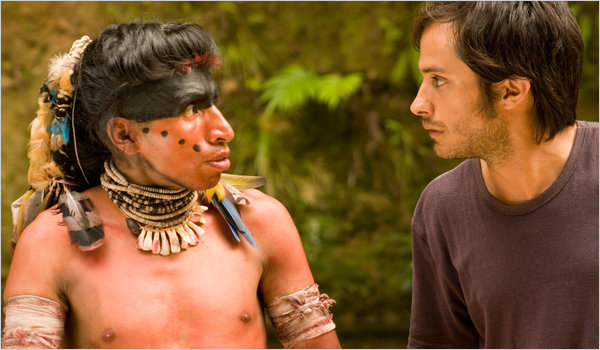
Spanish director Sebastian (Gael Garcia Bernal) and his friend, executive producer Costa (Luis Tosar), are traveling with their crew to Bolivia to shoot a controversial film about the life of Christopher Columbus. The choice of the country is not random; their budget is tight and in Bolivia they can hire local residents inexpensively, according to Costa.
The privatization of the water is going to complicate things for them, as most of their crew is protesting against it and they begin to feel unsafe by the entire situation. There is an alteration between the moralities of the two characters. At first, Sebastian does not feel right taking the protagonist of the film back to jail after they shoot the scene with the cross.
On the contrary, Costa doesn’t seem to have a problem with it. But as the movie goes on, we see the cynical Costa (“we pay them $2 and they are doing everything”) becoming softer and more willing to jeopardize his own life in order to save a little girl. It turns out that Sebastian wants to finish the movie at any cost, even if he has to leave someone behind.
The movie shows the difficult living conditions for the native people of Bolivia. The water company exploitation doesn’t differ much with hiring them by paying them a few dollars to make the movie. It seems natural to the people using them to make more money, as they think they’re doing them a favor, as there is no alternative for them to improve the quality of their lives.
The exploitation theme is central in this movie, and the blending of the two protagonists is great at showing the change of perspectives through the film. By participating in this film, Bernal proves that he truly cares about the everyday Odyssey the people in Latin America are living. It is a common theme in some of his previous movies (“Y Tu Mamá También”, “Motorcycle Diaries”), but also future ones (“No”).
9. No (Pablo Larraín, 2012)
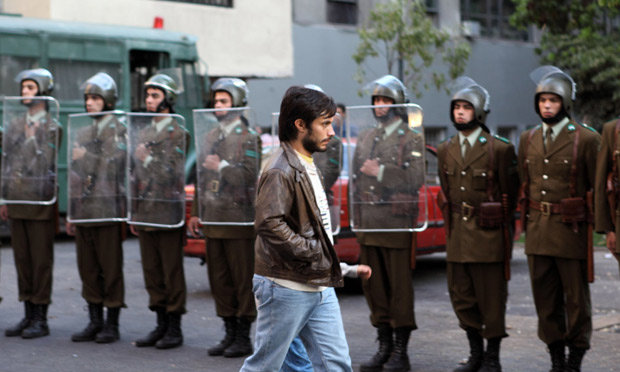
“No” focuses on real events that occurred in Chile in 1988. After constant pressure from the global community, dictator Augusto Pinochet, who threw Salvador Allende from power in 1973, is forced to call for a referendum so the people of Chile could decide whether they want him in power.
The opposition party proceeds to make a surprising choice of the man who will organize the campaign for “NO”. His name is René Saavedra (Gael Garcia Bernal), and he is a young and rising advertiser who plans to use a very different approach from what the party had in mind. Instead of showing the tortures and oppression from the Pinochet regime, René wants to show to the people of Chile how their life would be if they voted no.
We see glimpses of happy people and the campaign is called “The Happiness Is Coming”. The members of the opposition become furious with that approach, but René wins in the end and shows what most of the advertisers already knew: People prefer the happy images from the ugly ones.
Director Pablo Larrain concludes his trilogy about the military dictatorship (“Tony Manero”, “Post Mortem”) in Chile with “No”. Wisely, he does not take sides explicitly in favor or against the people of Chile, but rather prefers to base his movie on the actual facts from events happened during this turbulent period of time. He uses material from the original campaign, which is why the movie uses the same obsolete low-resolution image, adding a documentary style to the movie.
Gael Garcia Bernal is excellent in this film. At the beginning we see just another cynical advertiser who tries to sell a product, but throughout the movie his political conscience is affected and he truly believes in his cause. His performance seems so natural, without overreaction, that it blends in beautifully with the style of the movie.
10. Rosewater (Jon Steward, 2014)
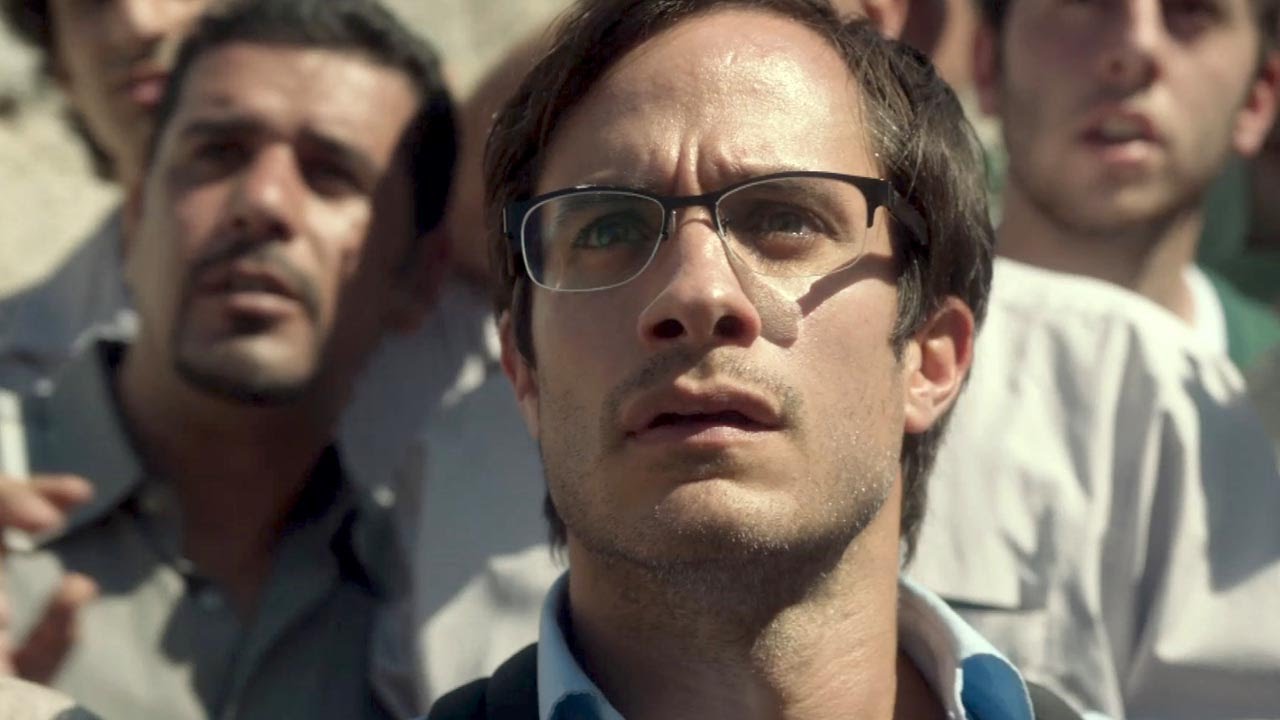
Maziar Bahari (Gael Garcia Bernal) is a Canadian-Iranian journalist who lives in London with his pregnant wife and works for the magazine Newsweek. He goes back to his hometown in Iran in order to cover the presidential elections between Mir-Houssein Mousavi and Mahmoud Ahmadinejad.
At the airport, a taxi driver (Dimitri Leonidas) takes him to his house and as they talk, they agree that he is going to be his personal driver for the next few days. He is a supporter of Mousavi and after some interviews he takes Maziar to a place that is full of Mousavi’s supporters.
Ahmadinejad wins the elections, but it does not take long for Maziar to understand that the results were manipulated. He decides to film some protests and even when the situation gets ugly and a man gets shot, he keeps filming. He believes that people from all over the world should know what is happening in Iran and he sends the material to the magazine.
The consequences will be harsh and the authoritative regime will imprison him the very next day. He will spend the next 118 days of his life in isolation, under the everyday psychological and sometimes psychical torture by cruel interrogator Javadi (Kim Bodnia).
This is the first film that Jon Stewart directs, who is mostly famous from Comedy Central’s “The Daily Show”. Known for his liberal disposition, he created a movie that is a protest for the authoritative regime in Iran and is based on real events that occurred during and following the elections in June 2009.
The movie is based on the autobiography of Maziar Bahari “Then They Came For Me: A Family’s Story of Love, Captivity and Survival”. Bernal is again accurate in portraying a person who is deals with difficult conditions and doesn’t really know how to handle them. Is he willing to do what it takes to become a hero?
With this movie, Bernal proves that his previous filmography is not by any chance random. He cares about democracy and freedom and wants to show through his movies how devastating it is for people to live under autocratic regimes.
Author Bio: Kostas Kapantais is a 28-year-old psychologist and he has been watching movies for a long time. He likes noticing details in movies that haven’t been spotted by a wider audience.